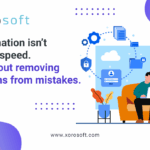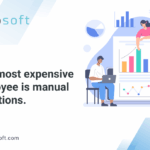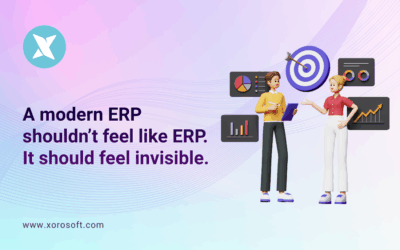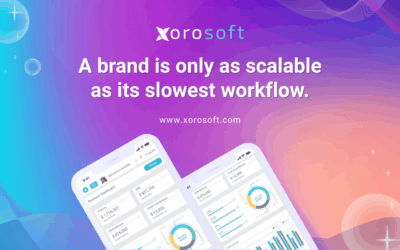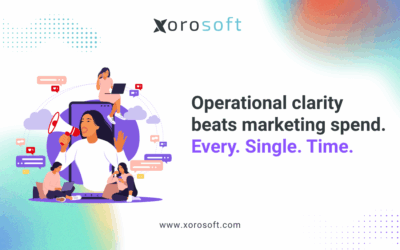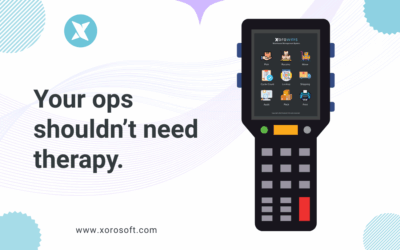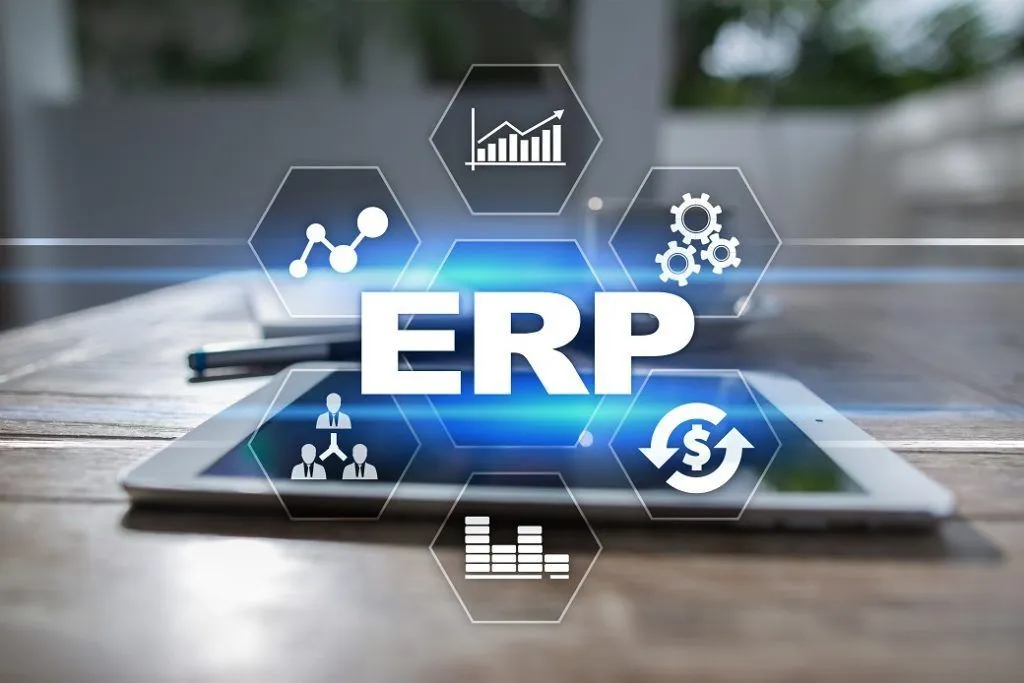
Introduction to ERP systems and their role in sustainability
In today’s rapidly changing business landscape, sustainability has become a critical consideration for small and medium-sized enterprises (SMEs). As a responsible business owner, I am constantly looking for ways to reduce our environmental impact while maintaining operational efficiency. One powerful tool that has emerged as a game-changer in this pursuit is the Enterprise Resource Planning (ERP) system. In this article, I will delve into the benefits of implementing an ERP system for SMEs and how it can contribute to reducing our environmental footprint.
The benefits of implementing an ERP system for SMEs
Implementing an ERP system offers numerous advantages for SMEs in their journey towards sustainability. Firstly, it streamlines and automates various business processes, such as inventory management, supply chain management, and accounting. By integrating these functions into a single system, we can eliminate redundant tasks, reduce paperwork, and minimize errors. This not only saves time and resources but also reduces our environmental impact by decreasing paper consumption and energy usage.
Secondly, an ERP system provides real-time visibility into our operations. It allows us to track and monitor our resource consumption, energy usage, and waste generation at a granular level. Armed with this data, we can identify areas of improvement and implement sustainable practices to optimize resource utilization. For example, by analyzing our energy consumption patterns, we can identify opportunities to reduce energy usage during non-peak hours or implement energy-efficient technologies.
Lastly, an ERP system enables better collaboration and communication within our organization. By centralizing all our data and processes, it eliminates silos and facilitates cross-functional collaboration. This enables us to make informed decisions based on accurate and up-to-date information, leading to better resource allocation and waste reduction. Furthermore, it fosters a culture of sustainability by providing employees with the tools and information they need to actively contribute to our environmental goals.
How ERP systems can reduce environmental impact
ERP systems play a crucial role in reducing the environmental impact of SMEs in several ways. One of the key ways is through improved resource management. By integrating inventory management into the ERP system, we can optimize our inventory levels, minimize waste, and reduce the need for excess production. This not only saves costs but also reduces the consumption of raw materials and energy. Additionally, an ERP system can help us identify and eliminate bottlenecks in our supply chain, reducing transportation-related emissions and improving overall efficiency.
Another way ERP systems contribute to sustainability is through enhanced waste management. With an ERP system, we can track and monitor our waste generation throughout the production process. This enables us to identify areas where waste is being generated and implement measures to minimize it. For example, by analyzing our waste data, we may discover that a specific production process is generating a significant amount of waste. With this insight, we can explore alternative production methods or implement recycling initiatives to reduce waste generation.
Furthermore, ERP systems enable us to measure and mitigate our carbon footprint. By integrating accounting functions into the ERP system, we can accurately track our energy usage, emissions, and carbon footprint. This allows us to set sustainability targets, monitor our progress, and implement measures to reduce our carbon footprint. For instance, we can identify energy-intensive activities and invest in energy-efficient technologies or renewable energy sources to reduce our environmental impact.
Key features of Xorosoft ERP system for sustainability
When it comes to choosing an ERP system for sustainability, Xorosoft ERP stands out as a leading solution. Xorosoft ERP offers a wide range of features and functionalities specifically designed to support SMEs in their sustainability efforts.
Firstly, Xorosoft ERP provides comprehensive inventory management capabilities. It allows businesses to track and manage their inventory levels in real-time, enabling better control over resource consumption and waste generation. Additionally, it enables businesses to implement just-in-time inventory practices, minimizing excess inventory and reducing the need for storage space and energy consumption.
Secondly, Xorosoft ERP integrates seamlessly with accounting functions, providing businesses with accurate and up-to-date financial data. This enables businesses to measure and monitor their resource consumption, energy usage, and waste generation, facilitating better decision-making and sustainability reporting.
Furthermore, Xorosoft ERP offers advanced reporting and analytics capabilities. It allows businesses to generate customized reports and dashboards to track their sustainability performance, set targets, and identify areas for improvement. With its intuitive interface and user-friendly design, Xorosoft ERP makes it easy for businesses to analyze their data and make data-driven decisions to drive sustainability initiatives.
Integrating inventory management and accounting into your ERP system
Integrating inventory management and accounting functions into your ERP system is a crucial step towards achieving sustainability. By combining these two functions, businesses can gain a holistic view of their operations and make informed decisions to optimize resource utilization and reduce waste.
To integrate inventory management into your ERP system, start by centralizing all inventory-related data. This includes product information, stock levels, supplier information, and purchase orders. By having all this information in one place, you can easily track and monitor your inventory levels, identify slow-moving items, and optimize your reorder points.
Next, set up automated alerts and notifications to ensure timely replenishment and minimize stockouts. This will help you avoid overstocking and reduce waste due to expired or obsolete inventory. Additionally, consider implementing barcode scanning or RFID technology to improve inventory accuracy and reduce manual errors.
To integrate accounting functions into your ERP system, start by mapping your chart of accounts to the ERP system’s financial modules. This will ensure that all financial transactions are recorded accurately and consistently. Additionally, set up automated workflows for invoice processing, payment approvals, and financial reporting. This will streamline your accounting processes, reduce paperwork, and minimize errors.
The role of Xorosoft in promoting sustainability through ERP solutions
Xorosoft plays a crucial role in promoting sustainability through its ERP solutions. With its comprehensive features and functionalities, Xorosoft enables SMEs to streamline their operations, optimize resource utilization, and reduce their environmental impact.
One of the key ways Xorosoft promotes sustainability is through its emphasis on data-driven decision-making. By providing businesses with real-time visibility into their operations, Xorosoft enables them to make informed decisions based on accurate and up-to-date information. This allows businesses to identify areas of improvement, set sustainability targets, and track their progress towards achieving them.
Furthermore, Xorosoft’s advanced reporting and analytics capabilities enable businesses to measure and monitor their sustainability performance. Businesses can generate customized reports and dashboards to track key sustainability metrics, such as resource consumption, waste generation, and carbon footprint. This empowers businesses to identify trends, spot anomalies, and implement measures to drive continuous improvement.
Moreover, Xorosoft actively supports its customers in their sustainability journey through dedicated customer support and training programs. Xorosoft’s team of experts provides guidance and assistance to businesses in implementing and optimizing their ERP systems for sustainability. This ensures that businesses can fully leverage the capabilities of Xorosoft ERP to drive their sustainability initiatives.
Choosing the right ERP system for your SME
Choosing the right ERP system for your SME is a critical decision that can have a significant impact on your sustainability efforts. When selecting an ERP system, consider the following factors:
- Functionality: Ensure that the ERP system offers the functionalities you need to support your sustainability initiatives. Look for features such as inventory management, accounting integration, reporting, and analytics.
- Scalability: Choose an ERP system that can grow with your business. Ensure that it can accommodate your future needs and support your long-term sustainability goals.
- Ease of use: Consider the user-friendliness of the ERP system. Look for an intuitive interface and a robust support system to ensure a smooth implementation and user adoption.
- Integration capabilities: Check if the ERP system can integrate with other software applications you use, such as CRM or e-commerce platforms. This will ensure seamless data flow and streamline your operations.
- Vendor support: Evaluate the vendor’s track record and customer support services. Choose a vendor that has experience in supporting sustainability initiatives and can provide the necessary guidance and assistance.
By carefully considering these factors and selecting the right ERP system, you can set your SME on the path towards sustainability and achieve your environmental goals.
Implementing an ERP system: Challenges and best practices
Implementing an ERP system for your SME can be a complex undertaking. However, with careful planning and adherence to best practices, you can ensure a successful implementation and maximize the benefits of your ERP system for sustainability.
One of the key challenges in implementing an ERP system is data migration. To overcome this challenge, start by conducting a thorough data cleanup and validation process. This involves identifying and rectifying any inconsistencies or errors in your existing data. Additionally, consider conducting a data audit to identify redundant or obsolete data and remove it before migration.
Another challenge is resistance to change. Implementing an ERP system requires a cultural shift within your organization. To address this challenge, involve your employees from the early stages of the implementation process. Provide them with training and support to familiarize them with the new system and its benefits. Additionally, appoint change champions within your organization to drive adoption and address any concerns or resistance.
To ensure a successful implementation, it is crucial to establish clear project goals and timelines. Break down the implementation process into manageable phases and set realistic milestones. This will help you track your progress and ensure that the implementation stays on track. Additionally, consider conducting regular reviews and assessments to identify any issues or bottlenecks and take corrective actions.
Lastly, post-implementation support and maintenance are essential for the long-term success of your ERP system. Ensure that you have a dedicated support team or access to technical support from your vendor. Regularly update your system with the latest patches and upgrades to ensure optimal performance and security.
By following these best practices and addressing the challenges proactively, you can ensure a smooth implementation and maximize the benefits of your ERP system for sustainability.
Conclusion: The future of SMEs and ERP systems in achieving sustainability
In conclusion, ERP systems have emerged as a powerful tool for SMEs in their pursuit of sustainability. By streamlining operations, optimizing resource utilization, and promoting data-driven decision-making, ERP systems can significantly reduce the environmental impact of SMEs while improving operational efficiency.
Xorosoft ERP stands out as a leading solution for SMEs looking to harness the power of ERP systems for sustainability. With its comprehensive features and functionalities, Xorosoft enables businesses to streamline their operations, measure their sustainability performance, and make data-driven decisions to drive continuous improvement.
As SMEs continue to prioritize sustainability, the role of ERP systems will become even more critical. By selecting the right ERP system, overcoming implementation challenges, and adhering to best practices, SMEs can transform their operations and achieve their sustainability goals.
To explore the capabilities of Xorosoft ERP and how it can support your SME in its sustainability journey, book a demo with Xorosoft today and take the first step towards a greener and more sustainable future.



